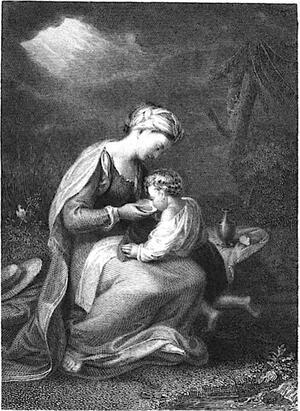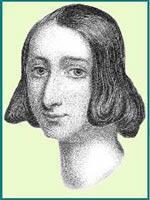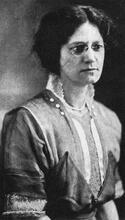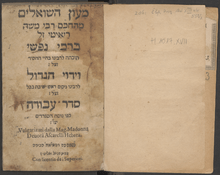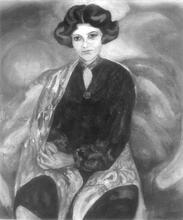Hagar: Apocrypha
Hagar appears in a wisdom poem (Bar 3:9-4:4) as part of an apocryphal letter written to the priests and people of Jerusalem from Baruch, the scribe and close friend of Jeremiah (Jeremiah 36). This poem emphasizes that humans cannot find wisdom except by seeking it directly from God and that wisdom has not been heard of in places traditionally associated with it. The inclusion of Hagar and her descendants is used to suggest their wisdom within the Ishmaelites. Hagar’s Egyptian background may enforce the understanding that her descendants could be associated with wisdom.
Article
Reference to Hagar appears in a wisdom poem (Bar 3:9–4:4) that is itself part of an apocryphal letter written sometime between 200 to 60 B.C.E. to the priests and people of Jerusalem from Baruch, the scribe and close friend of Jeremiah (Jeremiah 36).
The climax of the wisdom poem is that Wisdom is “the book of the commandments of God,/the law that endures forever” (Bar 4:1). Humans cannot find wisdom except by seeking it directly from God. Like Job 28, the wisdom poem asks, “Who has found her place?” (Bar 3:15). This rhetorical question is answered through a listing of those who have not found her—mighty rulers and later generations of seekers (Bar 3:16–21), giants of old (Bar 3:26–28), those with gold or silver (Bar 3:17–19).
Bar 3:22 indicates that wisdom has not been heard of in places traditionally associated with it: Canaan, renowned for its wealth and wisdom (see Ezek 28:3–5), and Teman, reputed for its wisdom (Jer 49:7). Bar 3:23 continues in a similar vein, enumerating others who have not found wisdom, and among them “the descendants of Hagar,” the Ishmaelites (Gen 16:11–12), who stand for the Ishmaelite territory in northwest Arabia (see Gen 25:18).
The inclusion of “the descendants of Hagar” in the group whom the poet claims have not found wisdom suggests, to the contrary, that the Ishmaelites were thought to be wise. The story of the Ishmaelites (or Midianites) to whom Joseph is sold (Gen 37:25–28) could be the background for the inclusion of the “descendants of Hagar” in Bar 3:23. Traders and traveling merchants sometimes transported culture as well as goods (travel and wisdom are associated in Ezek 28:5 and Sir 39:4). It is also possible that Hagar’s descendants could be associated with wisdom because of her Egyptian background (Gen 16:1) and their Egyptian heritage.
Meyers, Carol, General Editor. Women in Scripture. New York: 2000.

